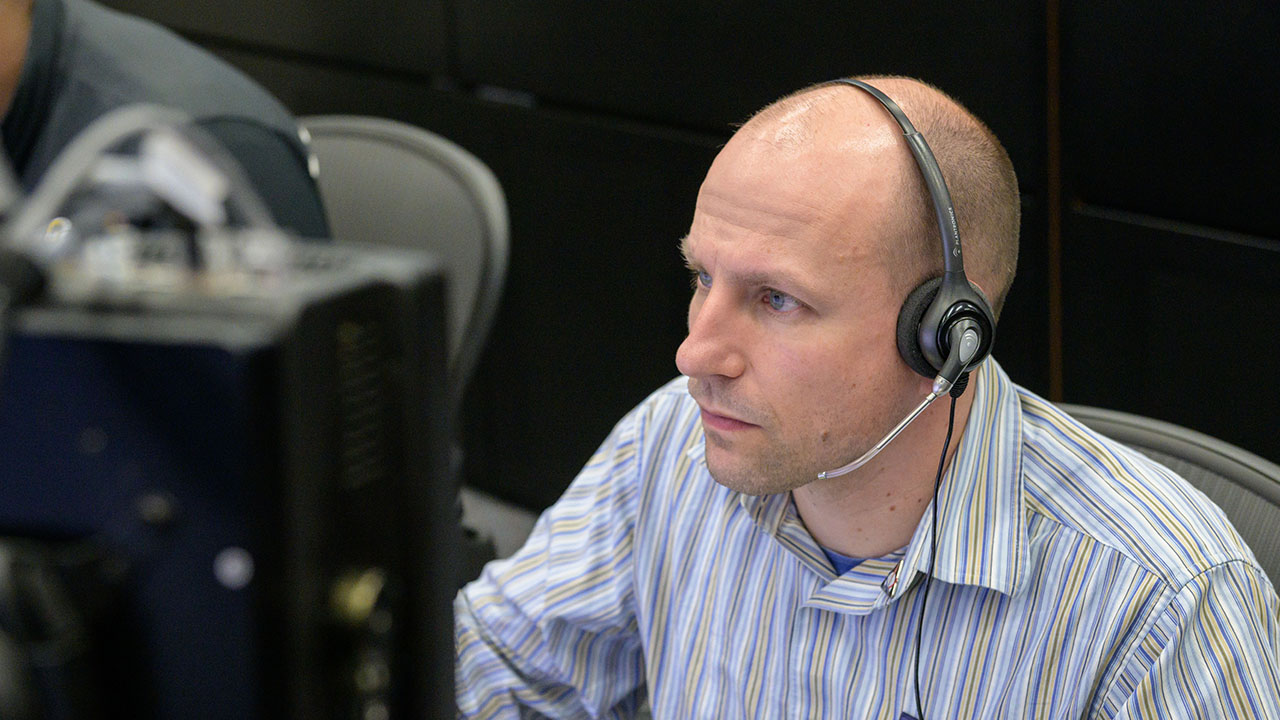
While growing up in rural Eastman, Wisconsin, Wyatt Fisher ’06 had interests typical of many kids—dreams of being a pilot and building with LEGOs. But, for Fisher, these interests would eventually spark a career in the aerospace field that is anything but typical, leading him to work on the launch of NASA’s most powerful rocket.
Fisher earned a mechanical engineering degree from UW-Platteville and embarked on a career with NASA immediately following graduation. He is currently a Launch Vehicle Systems Engineer for Jacobs, one of NASA’s contractors in its Artemis missions. The missions aim to land the first woman and person of color on the moon, explore the lunar surface, and establish a continued presence there. Last November, NASA launched its Artemis I mission, sending the uncrewed Orion capsule to lunar orbit, the first to return in 50 years.
Fisher’s position is focused on cross-program integration, ensuring that the different programs required to launch the Artemis rockets are able to interact with each other and share critical information. During last fall’s Artemis I mission, Fisher was in the Mission Evaluation Room at Johnson Space Center, in Houston, Texas, operating the Exploration Systems Directorate Systems Engineering and Integration Console. He sat console for the launch, as well as seven shifts of Orion’s in-space operations, capturing any issues and alerting management.
“I’ve been working toward Artemis I in one way or another for my entire career,” said Fisher. “It was a bit surreal being on console during the launch—being in a room with so many others who also dedicated so many years to this mission. Working console wasn’t something I initially pictured for my career. It was a challenge for sure and will go down as one of the highlights of my career.”
Fisher has already started working on the Artemis II mission, which will return humans back to lunar orbit.
“Once we complete post-flight analysis from Artemis I, there will be a large focus on making sure the human systems are fully prepared for another mission,” he said.